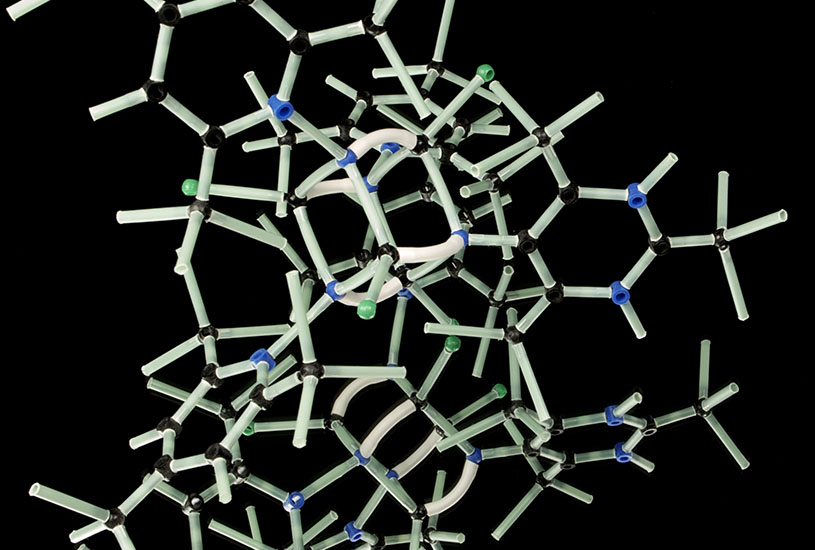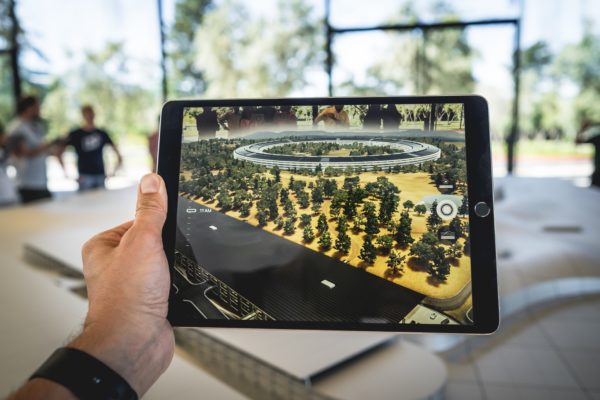A group of Deakin alumni have teamed up in the US to advance the technology behind DNA analysis.
Systems for quick, high-volume sequencing of DNA at relatively low cost have led to many recent medical breakthroughs.
However, the research that goes into developing such systems has also undergone some big leaps forward, and Deakin University alumni are behind some of the most innovative developments.
“We produce tools that enable new biological discoveries and help researchers to see things that couldn’t be seen before, whether they were hidden or couldn’t be found with existing technology,” said Ben Hindson, company executive and former Deakin PhD student.
“Our products give other scientists the means to understand really complex biological problems.”
A post-doctoral position at national security laboratory Lawrence Livermore National Laboratory lured Dr Hindson to the US, but the entrepreneurial chemist is now working on his second company specialising in cutting-edge laboratory equipment.
[testimonial_text]Rather than building tools solely for government, I wanted to build tools that could be used more widely in the research community, and then build a business out of it.[/testimonial_text]
[testimonial_picture name=”Dr Ben Hindson” details=” Chief Scientific Officer, President and co-founder of 10x Genomics”]
 [/testimonial_picture]
[/testimonial_picture]Dr Hindson is Chief Scientific Officer, President and co-founder of 10x Genomics, a sequencing technology company in Pleasanton, California. He completed his Bachelor of Science in Chemistry and PhD in Analytical Chemistry at Deakin in 2001, under the supervision of Alfred Deakin Professor and Personal Chair Neil Barnett.
Dr Hindson’s first company, Quantalife, established with fellow scientists from Lawrence Livermore, developed a droplet digital polymerase chain reaction (PCR) system that provided quantification of target molecules with a previously unachievable level of precision and sensitivity. Quantalife was bought out by a much larger company, Bio-Rad, in 2011.
At 10x Genomics, as he did at Quantalife, Dr Hindson has worked with an ever-expanding group of Deakin alumni. He is currently working with five Deakin alumni at 10x Genomics, including his brother Dr Chris Hindson, now 10x Genomics’ Senior Director of Chemistry, who also completed his PhD under Professor Barnett.
Dr Ben Hindson said what stood out about his fellow Deakin graduates was their ability to apply their experience in one field to completely different problems in another.
“They’re good at solving problems. They have a solid understanding of the fundamentals and they have practical experience as well,” he said.
“They might be green with respect to US industry, but they adapt and work really hard to deliver results that people appreciate and that drive the company forward.
“We’ve had a great success rate as well in recruiting Deakin graduates. Everybody who has come over has ended up staying.”
Dr Hindson said the value of working with people from different scientific and business fields had driven the success of Quantalife and now 10x Genomics.
“You can come up with entirely new systems or abilities by working together to solve problems,” he said.
“We brought in folks who had marketing and industry experience and they helped us define the products we needed to build. We learnt as we went how to build the business based around a certain technology.”
Although Dr Hindson no longer spends much time in the lab, he stills finds the results of his company’s research into the development of cutting edge equipment rewarding.
“Ground-breaking cancer research and other discoveries are being made possible through our technology,” he said.
“It’s exciting to be part of that.”
Deakin’s Professor Barnett, who maintains regular contact with the Hindson brothers and has seen a number of his former PhD students join them in California, says the success of the Deakin alumni demonstrates how well the University trains its students in the fundamentals of research.
“We equip our graduates to deal with new things,” he said.
“I didn’t teach Ben and Chris how to run a business. I taught them chemistry, but if you teach students how to solve fundamental problems they can tackle anything.”
This story was published by Deakin Research on 18 May 2017.



